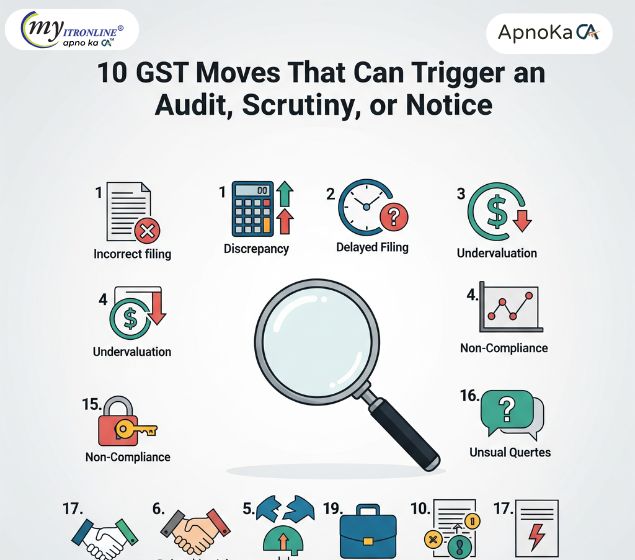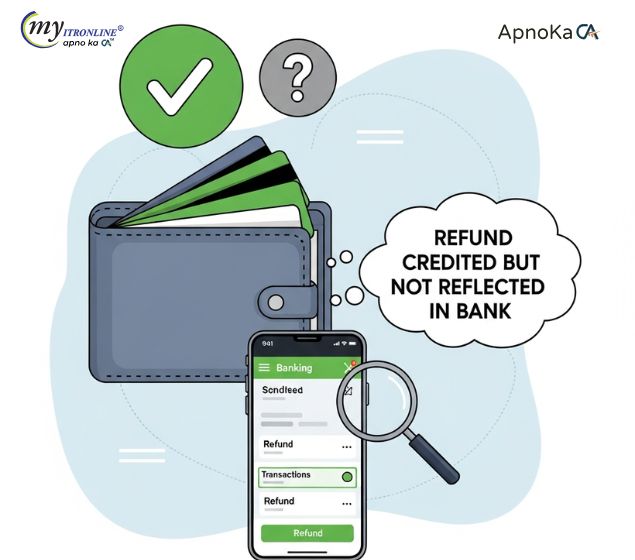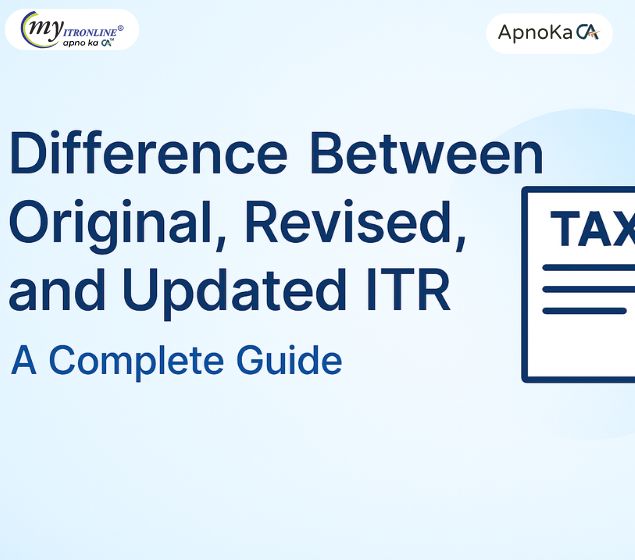# taxtips
12 posts in `taxtips` tag

10 GST Moves That Can Trigger an Audit, Scrutiny, or Notice
The GST system uses AI and data analytics to flag discrepancies. This guide details the 10 most common GST mistakes such as excess ITC and GSTR mismatches that instantly catch the department’s eye and lead to notices or audits.

our Tax Refund: Can It Go to Your Friend’s or Family’s Account?
Can your income tax refund go to someone else’s bank account? The answer is no — unless you're a legal heir claiming a refund for a deceased taxpayer. This blog explains why the Income Tax Department requires PAN-linked bank accounts and how to avoid refund failures by validating your account properly.

Refund Returned by Bank? Here's How to Get Your Money Back
If your income tax refund shows “Refund Failed” or “Refund Returned by Bank,” it means your bank couldn’t accept the payment. This guide explains the common reasons for refund failure and walks you through the simple online steps to fix your bank details and request a refund reissue through the Income Tax portal.

Refund Credited but Not Reflected in Bank What to Do?
Many taxpayers face the issue where their Income Tax refund status shows "Refund Credited" but the money doesn’t appear in their bank account. This guide explains why it happens, how to check your bank and portal details, and what steps to take to resolve it quickly.

Difference Between Original, Revised, and Updated ITR A Complete Guide
This blog explains the differences between Original, Revised, and Updated Income Tax Returns (ITR) in India. It covers filing timelines, applicable sections, fees, and practical examples to help taxpayers choose the right return type and avoid penalties.

Default Isn’t Always Best: How to Choose the Right Tax Regime in 2025–26
India's income tax system has undergone a major shift for FY 2025–26, with the New Tax Regime now set as the default. This blog breaks down the differences between the New and Old Regimes, compares tax slabs, and helps taxpayers decide which option suits them best. Whether you're a young professional or a seasoned investor, understanding these changes is key to smarter tax planning.

Didn’t File ITR by September 16? Here’s What You Can Still Do
This blog post provides a comprehensive guide for individuals who have missed the September 16, 2025, deadline for filing their Income Tax Return (ITR) for FY 2024-25. It reassures readers that filing is still possible through a "belated return" by December 31, 2025, but outlines the associated penalties, including late filing fees (₹1,000 or ₹5,000) and interest on unpaid tax. The article also details other consequences of late filing, such as the inability to carry forward certain losses, delayed refunds, and potential loss of specific deductions. It touches on rare exceptions and what happens if even the belated deadline is missed. Finally, it offers practical advice to act promptly, gather documents, compute accurately, and seek professional help, promoting MyITROnline as a solution for simplified tax filing.

Smart Property Moves: How Sections 54 and 54F Can Slash Your Tax Bill on Residential Property Sales (Latest Rules 2025)
Discover how Sections 54 and 54F of the Indian Income Tax Act provide crucial tax exemptions on Long-Term Capital Gains from property sales. This comprehensive guide covers the latest rules for 2025, including the new ₹10 Crore cap and the two-house option under Section 54, offering practical examples and a step-by-step plan for effective tax planning.
.jpg)
Lost Your Form 16? Don't Panic! Here's How to File Your ITR Successfully Without It.
This comprehensive guide addresses the common concern of a missing Form 16. It empowers salaried individuals to confidently file their Income Tax Return by detailing essential alternative documents (pay slips, Form 26AS, AIS) and providing a clear, step-by-step process for successful and compliant ITR filing, ensuring no one misses the deadline due to a lost document.
.jpg)
Oops! Did You Make an ITR Mistake? Here's How to Easily File a Revised Return
Made an error on your Income Tax Return? Don't stress! This comprehensive guide walks you through the process of filing a Revised Return under Section 139(5) for Assessment Year 2025-26. Learn common reasons for revision, key deadlines, and a simple step-by-step online process to ensure your tax records are accurate and penalty-free.
.jpg)
Set Off and Carry Forward of Losses: A Detailed Explanation
This blog provides a comprehensive explanation of the provisions for setting off and carrying forward losses under the Indian Income Tax Act. It details the process of adjusting financial losses against profits to reduce the overall tax burden. The article breaks down the two primary methods: intra-head and inter-head set-off, outlining the specific rules and restrictions for various types of losses, including business loss, capital loss, and loss from house property. It also covers the crucial conditions and timelines for carrying forward unadjusted losses to future years, making it an essential guide for taxpayers looking to optimize their tax planning for the Assessment Year 2025-26.
.jpg)
Digital Assets & Tax: What's New for Indian Investors in FY 2025-26?
India's digital asset taxation is maturing. For FY 2025-26, the core 30% tax and 1% TDS on VDAs remain, but expect a wider definition of VDAs and mandatory reporting by exchanges. This blog details current rules and what enhanced compliance means for crypto and other new-age investors.
